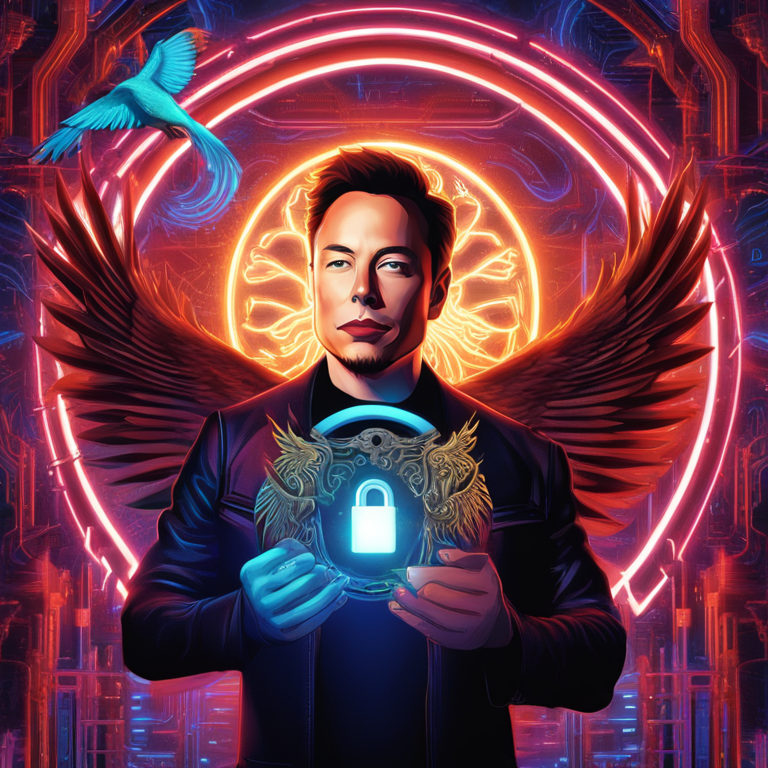Elon Musk's Paywall on X Sparks Ripple CTO's Ire: A Dive Into Free Speech vs. Bot Battle
- byAdmin
- 16 April, 2024
- 20 Mins

Elon Musk's Paywall on X Sparks Ripple CTO's Ire: A Dive Into Free Speech vs. Bot Battle
When Elon Musk decided to introduce a "small fee" for new users wanting to post on X (the platform formerly known as Twitter), he probably didn't expect David Schwartz, Ripple's CTO, to lead the charge against him. The tech moguls find themselves at opposite ends of a debate that encapsulates more than just the fight against spam—it's a conversation about the price of free speech in the digital age. Sparks flew as X unveiled its plan to charge new users from New Zealand and the Philippines to post, like, reply, or bookmark in an attempt to quash bot armies. Musk's bot-battling strategy has met resistance, with critics arguing it could stifle the very open discourse Musk claims to champion. The story unfolds against a backdrop of technological warfare, legal speech, and the future of digital interaction on one of the world's most influential social media platforms.
Ripple's CTO Clashes With Elon Musk Over X's Latest User Fee Strategy

In a world where "tweeting" has morphed into "X-ing," Elon Musk's latest chess move – a fee for newbies wanting to dip their toes into the vast ocean of X (the social media butterfly formerly known as Twitter) – has sparked quite the uproar. What began as a strategy to curb the ever-persistent bot assault has unfurled into a full-blown debate about free speech, with Ripple's CTO, David Schwartz, entering the fray. Musk, known for his disdain for spam bots, introduced a "small fee" for new users from New Zealand and the Philippines to engage on the platform, aiming to fortify its defenses against AI-driven and troll farm accounts capable of passing "Are you a bot?" tests with flying colors. While Musk aims his cannons at the bot armada, the rest of us are left wondering: Is this the dawn of pay-to-speak on social media, or a necessary evil in our digital age?
As the crypto world buzzed with reactions, Schwartz didn't mince words, challenging Musk on the grounds of free speech, a principle both have vocally championed. "I thought you were against censoring any lawful speech on your platform," Schwartz quipped, pointing out the irony in Musk's plan potentially sidelining legitimate, albeit "annoying," voices. In essence, Schwartz's critique brings to light a fundamental tension between thwarting spam and ensuring open dialogue. Amidst this philosophical and technological tug-of-war, Musk stands firm, arguing the fee is a bulwark against bots that have grown too clever for traditional gatekeeping tactics. Meanwhile, critics like Schwartz see it as a slippery slope that could mute the vibrant cacophony of voices that make social media the dynamic public square it is today.
Taking a step back, this latest development is but a chapter in the ongoing saga of social media platforms grappling with the dual demons of freedom of expression and platform integrity. Historically, sites like X have been battlegrounds where the ideals of unfettered speech clash with the pragmatic need to shield users from spam, misinformation, and digital harassment. This tension is not new; however, Musk's proposed solution is – setting a financial threshold for participation. As this narrative unfolds, we're reminded of the delicate balance between innovation and inclusion in the digital realm, with Musk's move reigniting age-old debates in a new, monetized context.
Additional Insights Into Musk's Controversial X Charge
In the digital world where engagement is king, the news of Twitter's transformation into X under Elon Musk’s regime has been met with mixed reactions, particularly concerning the newly introduced user fee. This fee, while aimed at curtailing the ever-growing problem of bots, brings to light a number of implications for free speech and the nature of public discourse online. Interestingly, this isn't the first time a social media platform has attempted to implement measures to protect its integrity, yet Musk’s approach is notably different owing to his vocal commitment to upholding free speech. It raises questions about where the line should be drawn between fighting spam and preserving the open exchange of ideas.
Despite the platform's intentions, there's a palpable concern within the crypto community, especially among those like Ripple’s David Schwartz, who fear that such measures could inadvertently silence genuine users. Elon Musk's assertion, in response to backlash, emphasizes the necessity of this fee as a defense mechanism against sophisticated bots capable of bypassing traditional checks. On the flip side, critics argue that the fee could set a precedent, potentially opening the doors for further restrictions under the guise of platform protection.
The debate heats up with the notion that while the fee is designed to deter bots, it may not hinder the more determined fraudsters within the crypto space. High-profile scams, often camouflaged behind verified accounts, continue to plague the platform, suggesting that the proposed fees might not be the panacea Musk envisions. This development, therefore, underscores a much larger issue within social media and the digital communication landscape—balancing the scales between security and freedom of expression.
Conclusion: Navigating the Future of Free Speech and Bot Battles on X
In conclusion, Elon Musk's introduction of a user fee on X marks a pivotal moment in the discourse surrounding digital freedom and the fight against online spam. While the move has ignited controversy, particularly among notable figures like Ripple’s CTO, David Schwartz, it also opens up a broader conversation about the evolution of social media platforms and their role in public dialogue. Whether this fee will effectively curb the influence of bots without stifling genuine conversation remains to be seen. However, it undeniably sets a new precedent for how platforms might manage these challenges moving forward. As we peer into the future, the balance between innovation and inclusion, between combating digital adversaries and nurturing an open forum for expression, will continue to shape the digital realm. The saga of X serves as a stark reminder of the complexities that lie at the heart of the internet—a space that is simultaneously a bastion of free speech and a battlefield of competing ideologies and technological advancements.



